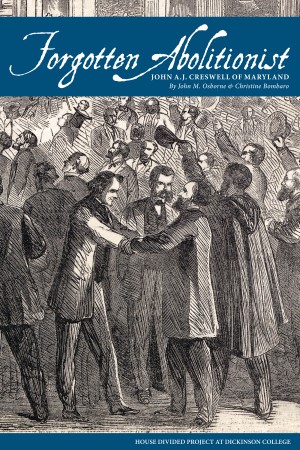Abraham Lincoln hated slavery, but he always appeared to proceed cautiously about emancipation. Why? There are many possible answers to this profound question and all good students need to figure out for themselves what they believe best explains the evolution of Lincoln’s views on this critical topic. Here are a selection of important quotations (with links to their full text sources) that might help forge your own analysis.
From Lincoln’s First Public Statement on Slavery, March 3, 1837
“[I] believe that the institution of slavery is founded on both injustice and bad policy; but that the promulgation of abolition doctrines tends rather to increase than to abate its evils.”
Private Letter to Joshua Speed, August 24, 1855
“You may remember, as I well do, that from Louisville to the mouth of the Ohio there were, on board, ten or a dozen slaves, shackled together with irons. That sight was a continual torment to me; and I see something like it every time I touch the Ohio, or any other slave-border. It is hardly fair for you to assume, that I have no interest in a thing which has, and continually exercises, the power of making me miserable.”
From Public Speech in Chicago, July 10, 1858
“I have always hated slavery, I think as much as any Abolitionist….I have always hated it, but I have always been quiet about it until this new era of the introduction of the Nebraska Bill began. I always believed that everybody was against it, and that it was in course of ultimate extinction.”
Public Letter to Horace Greeley, August 22, 1862
“My paramount object in this struggle is to save the Union, and is not either to save or to destroy slavery….What I do about slavery, and the colored race, I do because I believe it helps to save the Union; and what I forbear, I forbear because I do not believe it would help to save the Union.”
Private Letter to Nathaniel Banks, August 5, 1863
“For my own part I think I shall not, in any event, retract the emancipation proclamation; nor, as executive, ever return to slavery any person who is free by the terms of that proclamation, or by any of the acts of Congress.”
Public Letter to Albert Hodges, April 4, 1864
“I am naturally anti-slavery. If slavery is not wrong, nothing is wrong. I can not remember when I did not so think, and feel. And yet I have never understood that the Presidency conferred upon me an unrestricted right to act officially upon this judgment and feeling.”
Private Interview with Alexander Randall and Joseph Mills, August 19, 1864
“There have been men who have proposed to me to return to slavery the black warriors of Port Hudson & Olustee to their masters to conciliate the South. I should be damned in time & in eternity for so doing.”
From Lincoln’s Last Public Address, April 11, 1865
“What has been said of Louisiana [reconstruction] will apply generally to other States. And yet so great peculiarities pertain to each state, and such important and sudden changes occur in the same state; and withal, so new and unprecedented is the whole case, that no exclusive, and inflexible plan can be safely prescribed as to details and colatterals. Such exclusive, and inflexible plan, would surely become a new entanglement. [Yet] Important principles may, and must, be inflexible.”

